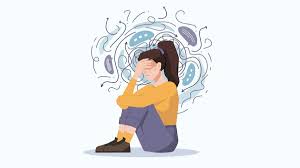Understanding Anxiety: A Comprehensive Guide to Different Types
Understanding Anxiety: A Comprehensive Guide to Different Types
Occasional anxiety is a normal part of life. Many people worry about things such as health, money, or family problems. But anxiety disorders involve more than temporary worry or fear. For people with an anxiety disorder, the anxiety does not go away and can get worse over time.
There are different types of anxiety. Here are some of them:
Generalized Anxiety
Generalized anxiety disorder is a mental and behavioral disorder, specifically an anxiety disorder characterized by excessive, uncontrollable and often irrational worry about events or activities.
Some symptoms include:
- being irritable
- feeling restless
- difficulty concentrating
- having headaches and stomach aches
- difficulty controlling feelings of worry
- having sleeping problems
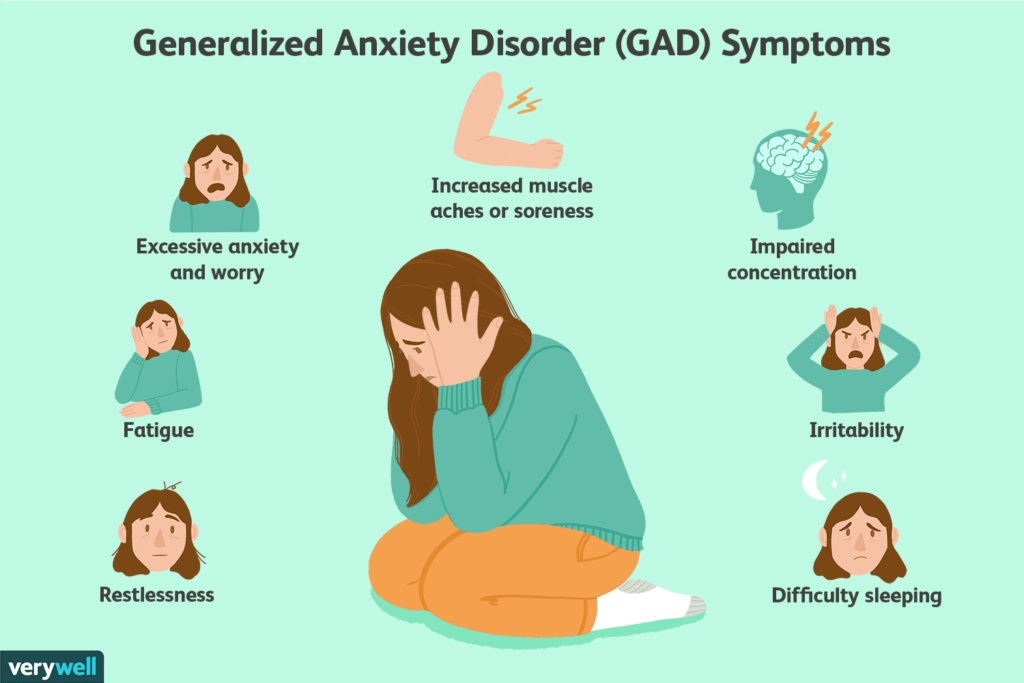
Social Anxiety Disorder
Social anxiety disorder is an anxiety disorder characterized by sentiments of fear and anxiety in social situations, causing considerable distress and impairing ability to function in at least some aspects of daily life.
Some symptoms include:
- sweating
- trembling
- heart racing
- stomachaches
- difficulty making eye contact
- feeling of being self-conscious
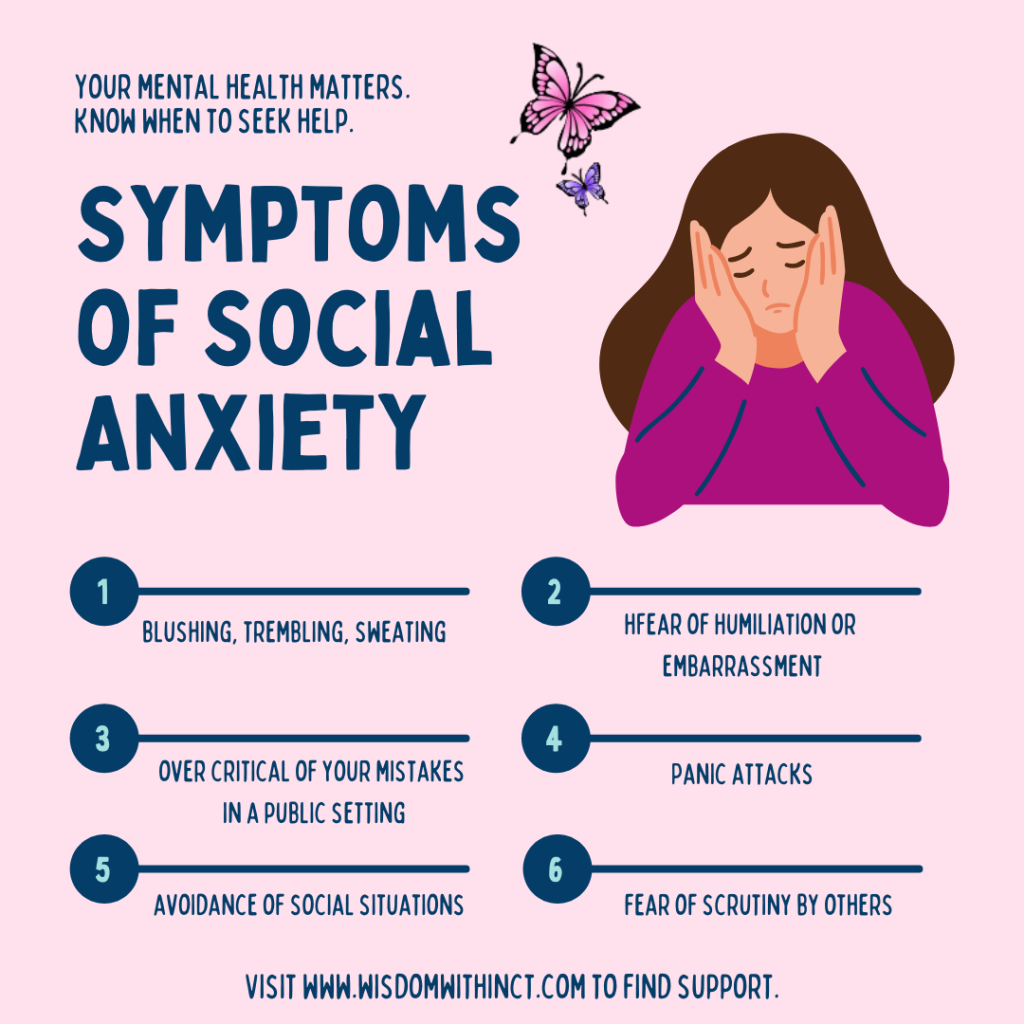
Panic Disorder
Panic disorder is a mental and behavioral disorder, specifically an anxiety disorder characterized by reoccurring unexpected panic attacks.
Some symptoms include:
- heart racing
- sweating
- trembling
- chest pain
- feeling on impending doom
OCD
Obsessive–compulsive disorder is a mental and behavioral disorder in which an individual has intrusive thoughts and feels the need to perform certain routines repeatedly to relieve the distress caused by the obsession, to the extent where it impairs general function.
Some symptoms include:
- fear of germs
- Fear of forgetting, losing, or misplacing something
- Fear of losing control over one’s behavior
- Unwanted, forbidden, or taboo thoughts involving sex, religion, or harm.
- Needing things to be orderly and balanced
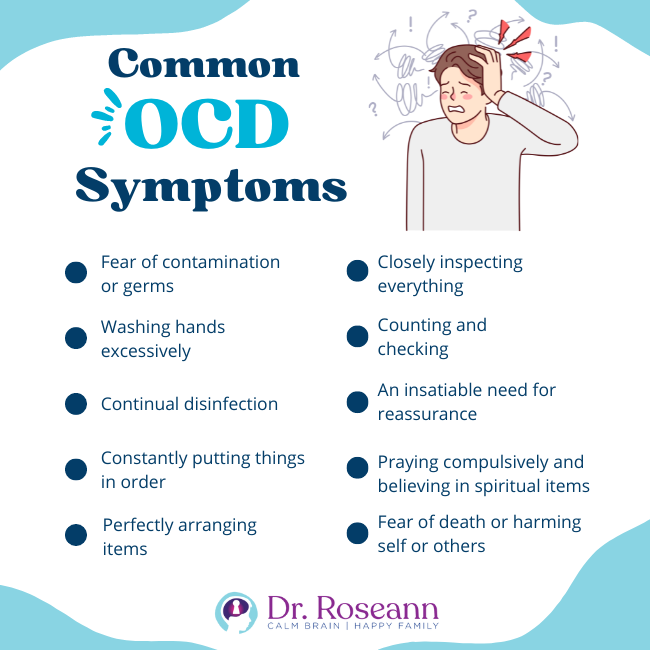
Separation Anxiety Disorder
Separation anxiety disorder is an anxiety disorder in which an individual experiences excessive anxiety regarding separation from home and/or from people to whom the individual has a strong emotional attachment.
Some symptoms include:
- difficulty being away from parents or other loved ones
- excessive worry about harm to loved ones
- excessive worry about danger to self
- difficulty leaving the house, even to go to school
- feeling physically ill when away from loved ones
Agoraphobia
Agoraphobia is the fear of being in situations where escape may be difficult or embarrassing. Or help might not be available in the event of panic symptoms.
These people may fear:
- public transportation
- open spaces
- being in enclosed spaces
- standing in line or being in a crowd
- being outside of the house alone
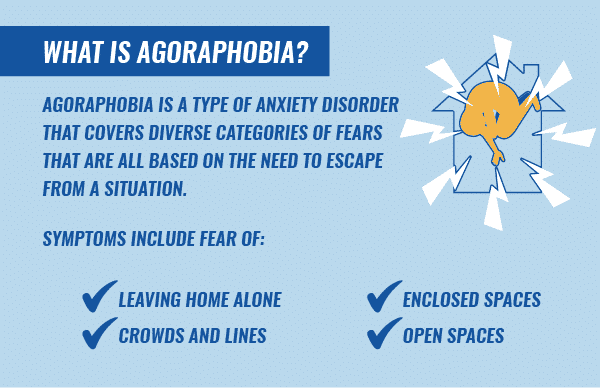
Health Anxiety
Hypochondriasis also known as this syndrome is a condition in which a person is excessively and unduly worried about having a serious illness. Hypochondria is an old concept whose meaning has repeatedly changed over its lifespan.
Some symptoms include:
- shortness of breath
- chest pain
- fatigue
- insomnia
- irritability
- abdominal pain
Selective mutism
Selective mutism is an anxiety disorder in which a person who is otherwise capable of speech becomes unable to speak when exposed to specific situations, specific places, or to specific people, one or multiple of which serving as triggers. This is caused by the freeze response.
Specific Phobia
Specific phobia is an anxiety disorder, characterized by an extreme, unreasonable, and irrational fear associated with a specific object, situation, or concept which poses little or no actual danger
Risk factors for anxiety:
Researchers are finding that both genetic and environmental factors contribute to the risk of developing an anxiety disorder.
Some general risk factors:
- Shyness or feeling distressed or nervous in new situations in childhood
- Exposure to stressful and negative life or environmental events
- A history of anxiety or other mental disorders in biological relatives
How is Anxiety treated?
Anxiety disorders are generally treated with psychotherapy, medication, or both. There are many ways to treat anxiety, and you should work with a health care provider to choose the best treatment for you.
My personal experience:
I started to experience social anxiety around the 7th grade.I would start to feel nauseous and my heart would race when I thought people were looking at me. This was the age where boys started to notice me. When they would look at me I would feel nauseous and my heart would race. In 8th grade I would actually vomit when my anxiety was really bad. Then in 9th grade, I remember being in a classroom and being really anxious and I felt like I was going to vomit. The teacher wouldn’t let me out of the classroom.I ran out of the classroom to the bathroom. Then called my mother to pick me up. I never went back again.
I refused to go back to school. My anxiety was so bad. I was homeschooled for 9th and 10th grade. In 11th grade I went to an alternative school. I was ok I didn’t have that much anxiety there. In 12th grade I went to another school. Again, I dealt with it. The doctors wanted to put me on medication but I refused.
I learned to deal with it until 2019 when my mom passed away of lung cancer. I started taking medication as needed. It seemed to help. I also have a son who has ADHD so my anxiety gets bad when it comes to him. Life in general can be a struggle when you have anxiety.I also have suffered from panic attacks.
If you think you may have an anxiety disorder
If you think you might have an anxiety disorder please see a mental health provider.
Understanding Anxiety: A Comprehensive Guide to Different Types
helpful ways to remove anxiety





